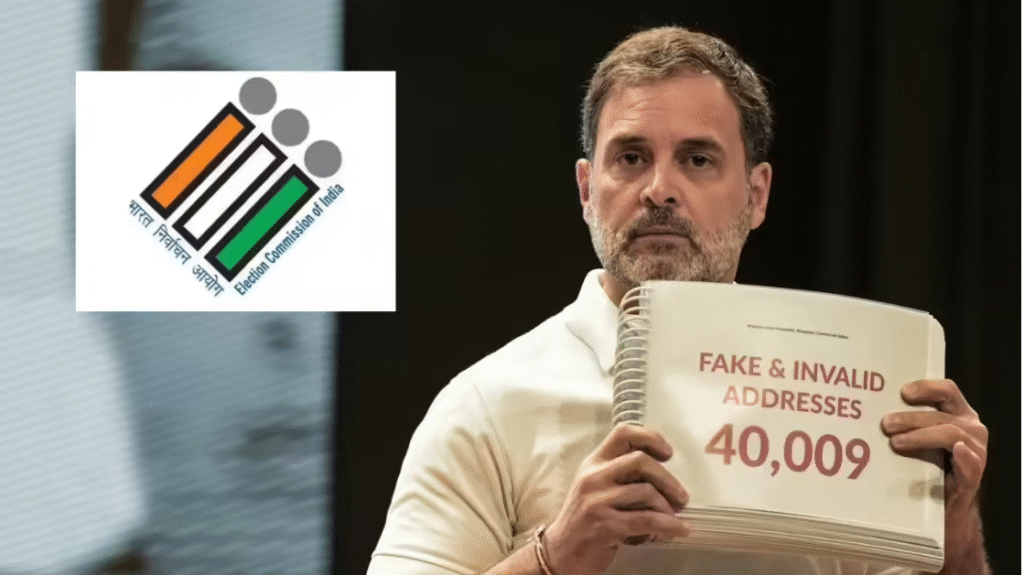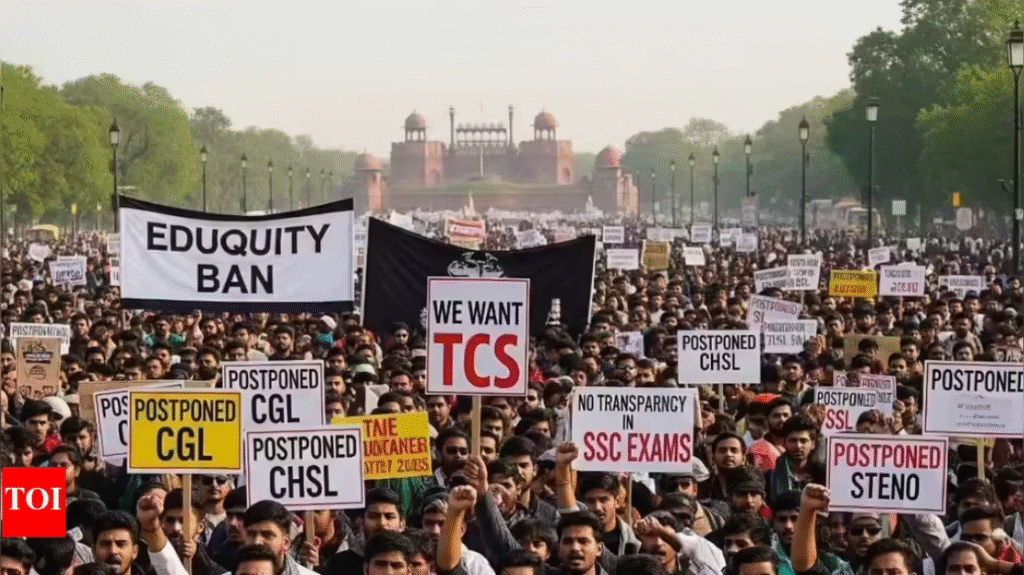A political firestorm is sweeping through Karnataka, as Congress leader Rahul Gandhi claims of Vote Chori that over 1 lakh votes were fraudulently recorded in the Mahadevapura assembly segment during the 2024 Lok Sabha elections—triggering a formal response from the Election Commission and escalating into a major legal and constitutional confrontation.
The Vote Chori Allegation
At a fiery press briefing at AICC headquarters, Rahul Gandhi claimed the party lost in Bangalore Central due to massive vote manipulation in Mahadevapura, which he said cost them victory by 1,14,046 votes. The breakdown of alleged fraud includes duplicate voters, fake addresses, bulk registrations at one address, invalid photos, and misuse of Form 6 (intended for new voters). Gandhi labeled this as “vote chori” and vowed it reflects a broader national pattern, potentially applied to 100+ Lok Sabha seats under what he termed the “Mahadevapura model”.
Election Commission Pushes Back
In reply, Karnataka’s Chief Electoral Officer issued a stern notice to Rahul Gandhi under Registration of Electors Rules, 1960, requesting signed evidence—including names, part numbers, serial numbers, and proof of duplicate voting. The notice cites Section 227 of the Bharatiya Nyaya Sanhita 2023, which carries penalties of up to seven years’ imprisonment and fines for false statements.
Political Flashpoint Escalates
The controversy reached beyond Mahadevapura. Congress launched a public campaign via a “Vote Chori” portal to highlight broader electoral irregularities, calling it a “huge criminal fraud” and urging citizens to demand transparency and integrity. In turn, Karnataka’s Deputy CM D.K. Shivakumar filed a formal complaint with the CEO, accusing EC officials of complicity in voter fraud and demanding investigative measures such as machine-readable electoral rolls and audits.
Counterclaims and Political Counterattack
The BJP has strongly contested the charges. Party strongman Aravind Limbavali, supported by booth-level agents, rejected Gandhi’s claims as politically motivated and baseless. The BJP also alleged similar irregularities—like fake voter entries—in opposition stronghold Varuna, urging equal scrutiny across the board.
Meanwhile, Congress’s Karnataka Chief Minister Siddaramaiah expressed full support for Gandhi, asserting he possesses credible evidence and demanded immediate EC action.
Analysis: Legal Stakes & Electoral Integrity
| Issue | Key Considerations |
|---|---|
| Evidence Required | Gandhi must submit affidavits and verifiable data to proceed legally. |
| Perjury Risk | False claims invite criminal liability under new 2023 penal statutes. |
| EC’s Constitutional Role | The EC’s demand underscores its mandate to uphold electoral integrity. |
| Political Fallout | Polarization intensifies; potential ripple effects across all major constituencies. |
| Need for Transparency | Gandhi’s demand for digitized rolls and CCTV footage raises fresh constitutional debates. |
Conclusion
The “Vote Chori” episode has transformed from a regional allegation into a national referendum on India’s electoral credibility. The demand for a signed oath and documentary evidence marks a legal turning point that tests democratic institutions.
As the EC inches toward possible investigation, the case may well set precedents on electoral transparency, accountability, and the legal perimeters of political rhetoric. The stakes are high—not just for Mahadevapura—but for the confidence of every Indian voter.
To read more Indian Laws and news, visit Legal Guide India



